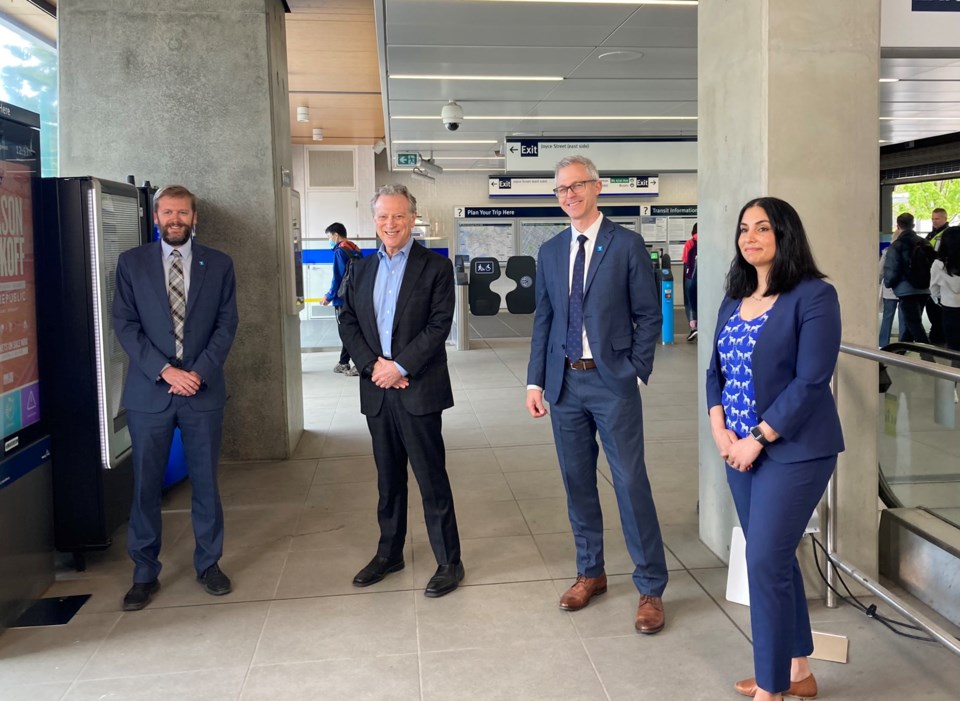A $2.4 billion commitment from the B.C. government still won’t be enough money to prevent TransLink from borrowing billions of dollars to cover its new 10-year plan.
George Heyman, the minister of environment and climate change strategy responsible for TransLink, announced Friday its commitment to the regional transportation authority's plan. That plan will grant TransLink, the ability to borrow another $1.3 billion, a 25 per cent jump that now totals $6.6 billion.
The plan will fund key capital projects like the Surrey-Langley SkyTrain extension as well as 500 battery-electric buses and 84 natural gas buses to replace more than one third of its diesel bus fleet.
The provincial funds are expected to cover 40 per cent of the costs of the SkyTrain project, while the federal government will pay a matching 40 per cent. TransLink is expected to pick up the rest of the tab, which is now expected to be close to $4 billion, up from a $3.2 billion price tag in 2019.
An unspecified amount of funding will also pad TransLink’s bottom line from losses incurred due to ridership decline during the pandemic.
Overall ridership is presently at 70 per cent of pre-pandemic levels. That has put stress on revenue streams, according to TransLink CEO Kevin Quinn.
Projections of ridership by TransLink indicate an annual funding shortfall of between $30 million and $295 million by 2025.
There are other sources of funding for the transit authority. The gas tax on vehicles could provide up to $1.6 billion over 10 years from the federal government. But with a push to convert to electric vehicles, it’s not clear if and by how much that money could fall short.
Heyman said the province is reviewing options for funding from municipalities. He did not commit to charging electric vehicle owners to pay for transit and road maintenance, as the gas tax typically does.
Quinn called the 10-year plan one that will require adjustments down the road.
“In the short term, it keeps us stable; in the long term, we have some work to do,” said Quinn.
“Given the uncertainties, this plan focuses on stabilizing our finances through 2024 and addressing any remaining gap in a subsequent plan,” notes a report to the Mayor’s Council May 26.
That report makes clear the creeping debt problem TransLink could be facing: “The additional borrowing exacerbates the net debt to operating revenue ratio. This is a ratio indicative of TransLink’s ability to service its debt and it is closely monitored by the bond rating agencies.
“According to the opinion of these agencies, TransLink’s net debt to operating revenue ratio is already high; further increases in this ratio, pushing it up to and potentially past the policy limit of 300% may negatively impact TransLink’s credit rating and ability to borrow.”
Surrey Board of Trade CEO Anita Huberman called Heyman’s announcement a “repeat,” considering the province had already committed funds to the SkyTrain project.
While Quinn said the line can be extended by 2028, Huberman said 2030 is a more realistic goal given the pace of government action.
Surrey needs more than just the SkyTrain extension, Huberman added, it also needs the light-rail project that had been in the works until it was replaced by the plan to extend the SkyTrain in 2019.
“Surrey also needs transportation innovations around and in Surrey. Skytrain is very expensive to build throughout Surrey. There are other progressive modes of transportation technology,” said Huberman.

